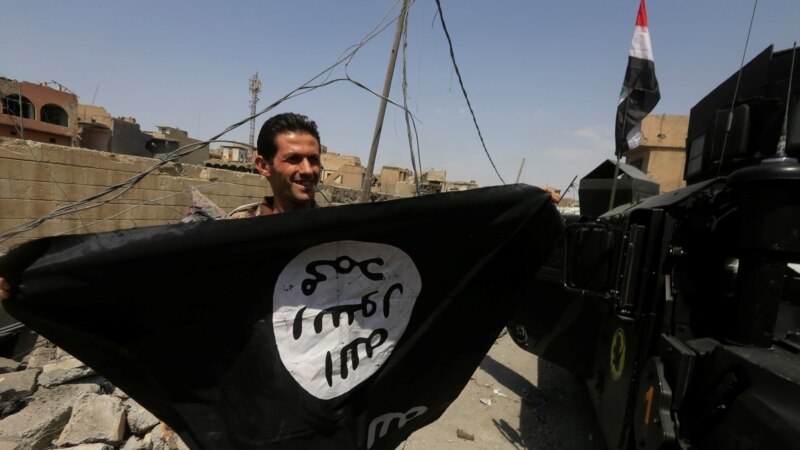Tehran Sees Liberation of Mosul as Victory for Iraq and Iran

A senior adviser to Iran’s Supreme Leader has described Iraq’s liberation of Mosul from Islamic State (IS) as a victory for Tehran.
Ali Akbar Velayati, an adviser to Supreme Leader Ali Khamenei, told reporters, “Liberation of the Iraqi city of Mosul from the hands of IS marks a triumph for Iran as well as for Iraq.â€
Majid Rafizadeh, a political scientist at Harvard University, said the victory by Iraqi forces “helped Tehran tip the regional balance of power against its Sunni-dominated rivals such as Saudi Arabia.â€
“The emergence of IS characteristically paved the road for Tehran to pursue its geopolitical, financial and strategic ambitions beyond its borders and helped Iranians to establish their manifestation through networks of affiliated proxy groups,†Rafizadeh added.
Tensions between Iran and longtime rival Saudi Arabia have escalated in recent weeks, since the Saudis and their Persian Gulf partners cut ties to Qatar, citing, in part, Qatar’s association with Iran and Tehran’s alleged link to terrorism.
​Iran’s role
Two days after Iraq Prime Minister Haider al-Abadi claimed victory in Mosul over Islamic State, the commander of Iran’s Revolutionary Guards Corps Quds Force, General Qasem Soleimani, detailed the role IRGC played in leading Iraq’s Popular Mobilization Forces (PMF) in their fight against Islamic State.
“We didn’t limit ourselves to sharing advice to our Iraqi brothers, but we extended our support by giving them the key to our ammunition depot and backed their operations with IRGC Sukhoi squadron,†Soleimani said.
The exact number of PMF troops is unclear, but it’s estimated to be between 100,000 and 120,000.
Iraq’s parliament approved the integration of PMF as an official wing of Iraqi’s security forces in November 2016, a move that has increased Tehran’s role in Iraq’s security and military sectors.
Iranian officials have rejected the notion that Tehran’s support of the PMF and other Iraqi military sectors is aimed at increasing its regional clout. But a recent speech by Soleimani appeared to contradict those statements.
“Iraq’s national army is on its way to internalize [Shi’ite] ideology,†Soleimani said. “We have also helped in the procedure of purifying the Iraqi army from Baathi elements and it is moving toward becoming a Hezbollah-like army.â€
​Iranian influence
Some analysts believe Soleimani’s comment reveals some aspects of Tehran’s outreach to boost its influence in Iraq institutionally.
“Tehran has deeply penetrated into security and military sectors of Iraq,†Rasool Nafisi, a Virginia-based Middle East expert, said. “Many of the Iraqi officials have pledged allegiance to Iran’s leader and see themselves committed to Tehran.â€
Iran may use its influence in Iraqi institutions not only to promote its regional ambition of confronting the Sunni powers, but in possibly challenging Washington, some analysts believe.
US in the region
U.S. President Donald Trump has portrayed Iranian influence as a global threat on par with IS and al-Qaida. In reaction to IS’s twin attacks in Tehran last month, Trump implied that the Iranian government was ultimately to blame.
“We underscore that states that sponsor terrorism risk falling victim to the evil they promote,†he said in a White House statement.
In recent comments, Secretary of Defense Jim Mattis said regime change will be necessary before the U.S. and Iran can have substantially positive relations.
In response, the deputy chief of staff of Iran’s armed forces, Brigadier General Massoud Jazzayeri, said Friday that Iran is determined to drive all foreign troops out of the region. “Americans are not welcome here and must leave immediately.â€
Analysts warn some PMF groups may turn against the U.S. forces if tensions arise between Washington and Tehran.
“If there is a perception that the U.S. will keep its military presence in Iraq and will have a mission more than just training the Iraqi security forces, then that will increase the incentive for the Shi’ite militias to more directly apply pressure on the United States to leave,†said Sarhang Hamasaeed, director of Middle East Programs at the U.S. Institute of Peace in Washington.
U.S. officials said there won’t be a hasty withdrawal of more than 9,000 U.S. and coalition forces after Mosul’s liberation. And one aim is to stabilize the region outside Mosul, where more than 25,000 Iraqi troops, including paramilitary forces made up of Sunni tribal fighters and Shi’ite militiamen, have been clearing IS from villages.
“Washington and Tehran look at the regional stabilization through different lenses,†Harvard political scientist Rafizadeh said.

0 Response to "Tehran Sees Liberation of Mosul as Victory for Iraq and Iran"
Posting Komentar